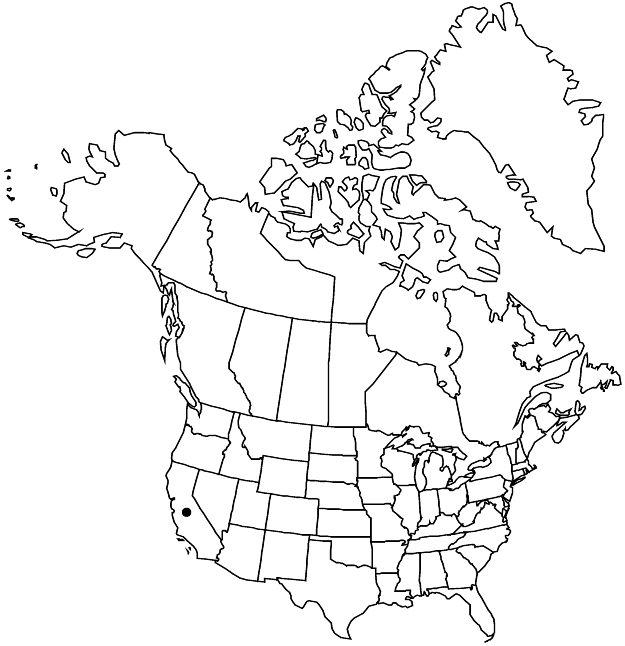Difference between revisions of "Chorizanthe rectispina"
Ann. Missouri Bot. Gard. 21: 72. 1934.
FNA>Volume Importer |
imported>Volume Importer |
||
| Line 8: | Line 8: | ||
}} | }} | ||
|common_names=Prickly spineflower | |common_names=Prickly spineflower | ||
| + | |special_status={{Treatment/ID/Special_status | ||
| + | |code=E | ||
| + | |label=Endemic | ||
| + | }}{{Treatment/ID/Special_status | ||
| + | |code=C | ||
| + | |label=Conservation concern | ||
| + | }} | ||
|basionyms= | |basionyms= | ||
|synonyms= | |synonyms= | ||
| Line 47: | Line 54: | ||
|publication title=Ann. Missouri Bot. Gard. | |publication title=Ann. Missouri Bot. Gard. | ||
|publication year=1934 | |publication year=1934 | ||
| − | |special status= | + | |special status=Endemic;Conservation concern |
| − | |source xml=https:// | + | |source xml=https://bitbucket.org/aafc-mbb/fna-data-curation/src/2e0870ddd59836b60bcf96646a41e87ea5a5943a/coarse_grained_fna_xml/V5/V5_959.xml |
|subfamily=Polygonaceae subfam. Eriogonoideae | |subfamily=Polygonaceae subfam. Eriogonoideae | ||
|genus=Chorizanthe | |genus=Chorizanthe | ||
Latest revision as of 22:15, 5 November 2020
Plants spreading to decumbent, 0.3–0.8(–1) × 0.5–4(–5) dm, appressed-pubescent. Leaves basal; petiole 0.5–2 cm; blade oblanceolate to spatulate, 0.5–1.5(–2) × 0.2–0.6 cm, thinly pubescent. Inflorescences with involucres in small, open clusters 0.5–1.5 cm diam., greenish to grayish; bracts 2, without whorl of sessile bracts about midstem, usually leaflike, oblanceolate to elliptic, 0.5–1.5 cm × 1.5–5 mm, gradually reduced and becoming scalelike at distal nodes, linear, aciculate, acerose, 0.3–0.8 cm × 1–2 mm, awns straight, 0.5–1.5 mm. Involucres 3–10+, grayish to reddish, urceolate, slightly ventricose basally, 2–2.5(–3) mm, slightly corrugate, without scarious or membranous margins, densely pubescent; teeth spreading, unequal, 1–2 mm; awns straight or uncinate, unequal, with longer anterior one straight, mostly 1.5–2.5 mm, others uncinate, 0.3–0.6 mm. Flowers exserted; perianth bicolored with floral tube yellow and tepals yellow or white, cylindric, 3.5–4 mm, sparsely pubescent; tepals connate 1/2 their length, dimorphic, obovate, those of outer whorl white, obovate to nearly orbiculate, 3–4 times longer than those of inner whorl, , truncate to slightly 2-lobed apically, those of inner lobes erect, yellow, broadly obovate, truncate and erose apically; stamens 9, included; filaments distinct, 1–1.5 mm, glabrous; anthers yellow to golden, oblong, 0.5–0.6 mm. Achenes brown, globose-lenticular, 3–3.5 mm. 2n = (36), 40, (44).
Phenology: Flowering May–Jul.
Habitat: Sandy to gravelly flats and slopes, mixed grassland communities, pine-oak woodlands
Elevation: 200-600 m
Discussion
Of conservation concern.
Chorizanthe rectispina is infrequent and localized in the Coast Ranges of west-central California.
Selected References
None.
